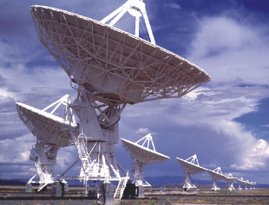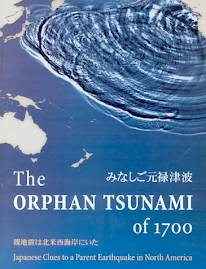
Thursday, June 11, 2009
Failure to take into account exponential advances in technology
The author argues that the empire will be saved because our native tongue is the lingua inglese of the world. We see this idea in Star Trek in which all the the Terrans speak "Standard", which presumably was intended to mean that they all speak "standard English" (but it now seems more likely that they speak "standard Mandarin" and what we are seeing is filtered through the universal translator).
The stats say it all. ... English is a first language for 400 million people, and a fluent second for between 300 and 500 million more... Add on top of that the 750 million who have studied English as a foreign language and you have well over 1 billion members of the English-speaking world. Every globally influential newspaper is either written in English or has an English-language version. The same is nearly true for science, where more than 90 percent of the world's major journals are printed in English. ...
Note that in Star Trek: Deep Space 9, for example, everyone is not speaking Standard. The Ferengi are usually speaking Ferengi, and for our convenience, everything is being processed by the universal translator. We see this when Quark's unit malfunctions and when the Ferengi are heard by we poor 20th century hewmons, who obviously do not have universal translators in our ears.
What the author does not anticipate is how rapidly computer translation will advance and how cheap it will become... like everything in computing... Try comparing a CNN story in English and the corresponding story in Spanish. Take the Spanish version and run it through the free Google translation software. You will be shocked. Now, of course this is much more difficult with other language pairs, and in, for example, many Japanese-English translations, there is not a single word that corresponds, but you can usually get the idea, or at least suspect that a passage is worth closer reading in English.
I would turn what the author is saying on its head and say that what will happen from now is that all publications will be available in real time in a first-glance computer-translated form, followed a day later by a human-edited form if of sufficiently wide interest. All publications, especially scientific publications, will be translated from the original language into all other major languages, and the translations will be subject to automatic indexing and "Google alerts". If something is really important, after seeing the gist in translated form, the person can then read the specific section of interest in the original (English) document or have the excerpt translated by a human translator. In other words, our advantage of being able to skim in our native language will be lost, and everyone will be able to skim in every language.
The result will be explosive advances in non-English-speaking countries as the language barrier nearly disappears. And wait until we actually do have reasonable cheap universal translators, say in ten years...
The stats say it all. ... English is a first language for 400 million people, and a fluent second for between 300 and 500 million more... Add on top of that the 750 million who have studied English as a foreign language and you have well over 1 billion members of the English-speaking world. Every globally influential newspaper is either written in English or has an English-language version. The same is nearly true for science, where more than 90 percent of the world's major journals are printed in English. ...
Note that in Star Trek: Deep Space 9, for example, everyone is not speaking Standard. The Ferengi are usually speaking Ferengi, and for our convenience, everything is being processed by the universal translator. We see this when Quark's unit malfunctions and when the Ferengi are heard by we poor 20th century hewmons, who obviously do not have universal translators in our ears.
What the author does not anticipate is how rapidly computer translation will advance and how cheap it will become... like everything in computing... Try comparing a CNN story in English and the corresponding story in Spanish. Take the Spanish version and run it through the free Google translation software. You will be shocked. Now, of course this is much more difficult with other language pairs, and in, for example, many Japanese-English translations, there is not a single word that corresponds, but you can usually get the idea, or at least suspect that a passage is worth closer reading in English.
I would turn what the author is saying on its head and say that what will happen from now is that all publications will be available in real time in a first-glance computer-translated form, followed a day later by a human-edited form if of sufficiently wide interest. All publications, especially scientific publications, will be translated from the original language into all other major languages, and the translations will be subject to automatic indexing and "Google alerts". If something is really important, after seeing the gist in translated form, the person can then read the specific section of interest in the original (English) document or have the excerpt translated by a human translator. In other words, our advantage of being able to skim in our native language will be lost, and everyone will be able to skim in every language.
The result will be explosive advances in non-English-speaking countries as the language barrier nearly disappears. And wait until we actually do have reasonable cheap universal translators, say in ten years...
Subscribe to:
Post Comments (Atom)

No comments:
Post a Comment